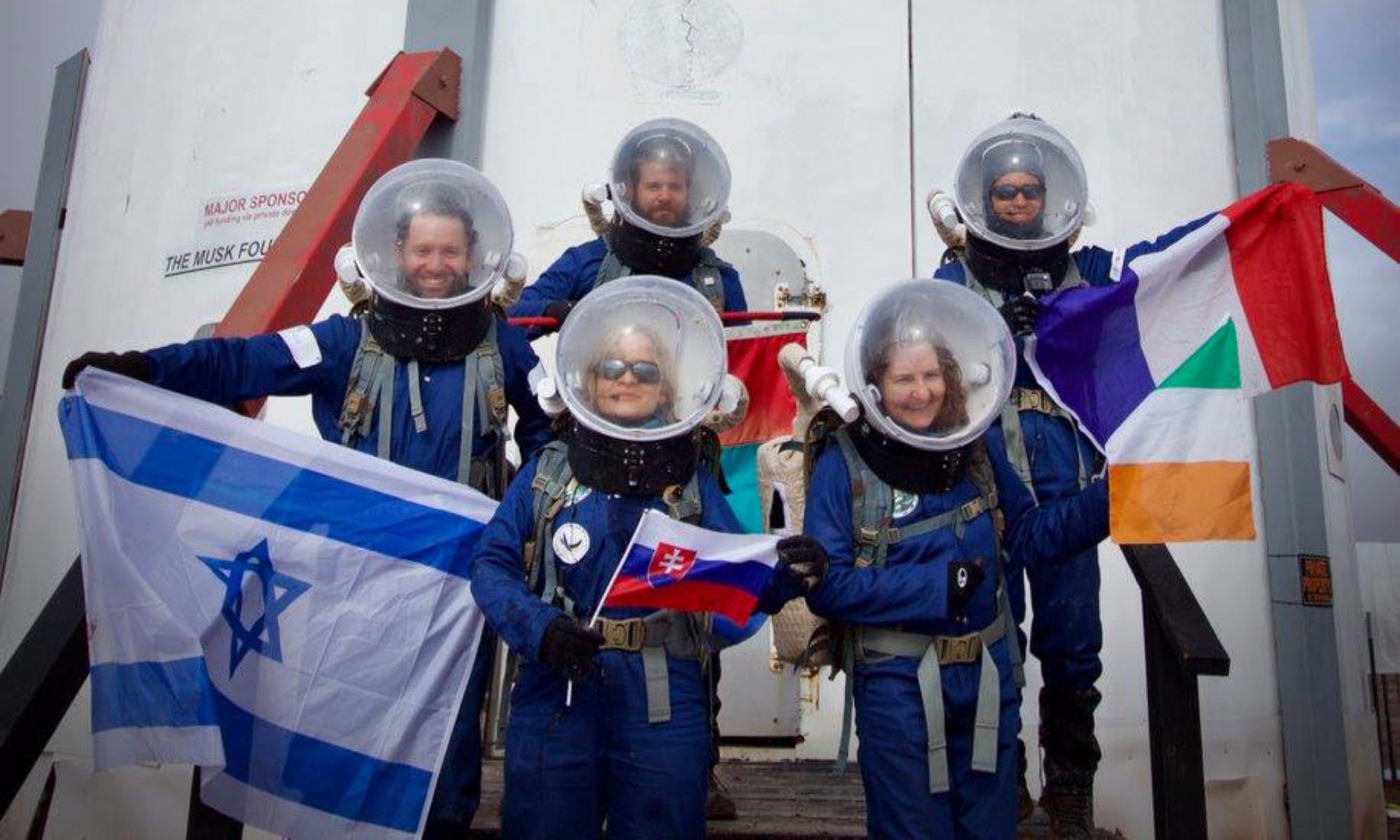Crew 280 Journalist Report 20-04-2023
Author: Núria Jar, Crew Journalist
The day began with no wind at the MDRS, but it was very cold outside with a temperature of only 0 Celsius degree (32ºF). The Hypatia crew members woke up warm and rested because they slept well last night. This is good news for the Crew Biologist, Carla Conejo, who is studying the impact of the simulation on the circadian rhythms of the crew. The data will show how they are already recovering and feeling rested after a stressful start of the mission. This research is essential as maintaining a healthy sleep-wake cycle for the well-being of astronauts during space missions is crucial.
Other experiments are going on their way and making good progress. The crew members are conducting the first experiments and calibrating them. One of these tests was to evaluate the feasibility of navigation strategies, which Crew Scientist, Ariadna Farrés Basiana, developed in the only extravehicular activity (EVA) of the day.
This EVA was quite long, so some crew members found themselves needing to pee during the exploration. Fortunately, this was not a problem thanks to Hypatia’s jumpsuit, which are tailored by women and can handle natural bodily functions during long EVAs like this one. The Hypatia jumpsuit has a flap in the back to make it easier to pee for women, because it is not necessary to take off the entire jumpsuit. This example highlights the importance of designing equipment and tools that take into account the specific needs and considerations of women in space.
The Hypatia I crew feels proud of being composed only by women, so it often takes advantage of any opportunity to voice its message. The crew members are proud to be an all-female crew, and they hope to inspire and encourage more women to pursue careers in STEM fields and space exploration. The four members who did the EVA took a photo with Hypatia’s flag of the mission. This is one of the moments to commemorate them later, back on Earth.
At the end of the day, Hypatia crew members are excited about the EVA request they have just submitted, pending to be approved. The purpose of this new EVA is to extract iron from rocks in order to generate batteries and demonstrate that Martian resources are sufficient to generate power and sustain a space mission. Experiments like this, led by the Crew Engineer, Neus Sabaté, are crucial towards long-term space exploration and could have implications both for future space missions and even for sustainable energy on Earth.

